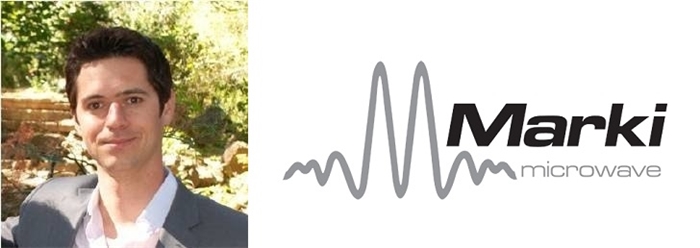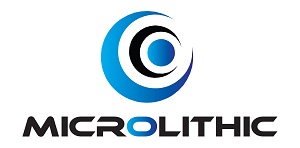
everything RF interviewed Christopher Marki, the CEO of Marki Microwave. He took over as CEO of the company from Ferenc Marki (his father and founder of the company) in 2016. Marki Microwave is one of the leading RF Mixer companies in the world.
Q. Can you give us a brief history about Marki Microwave? When was the company founded, and what was the objective of the company when it was founded?
Marki Microwave was founded in 1991 by Ferenc and Christine Marki as a result of the contraction of the microwave industry at the end of the Cold War eliminating any attractive employment prospects in the industry. It was not a very favorable time to start a company, with intense competition and a shrinking customer base. Despite, or perhaps because, of these adverse initial conditions Marki made a living in the commercial sector until defense rebounded in the early 2000s.
Q. Marki Microwave is best known for its mixers. What makes your Mixers stand out from the other Mixer Manufacturers?
The circuit design. While other manufacturers focus on devices, Marki understands that the performance of a mixer is all in the circuit. We have experimented with more mixer circuits than anyone in the world.
Q. Could you tell us about your Microlithic technology? What are the main benefits of mixers developed using this technology?
 Microlithic mixers offer many of the benefits of MMIC mixers (volume scalability, reproducibility, and size) while also providing the low loss and bandwidth (especially to lower frequencies) of hybrid mixers. For example, there are no 2-20 GHz double balanced mixers in chip form with performance similar to the ML1-0220LCH on the market that we know of. That being said, there are many advantages of MMIC technology that have led us to design all of our new mixers in a GaAs Schottky diode process.
Microlithic mixers offer many of the benefits of MMIC mixers (volume scalability, reproducibility, and size) while also providing the low loss and bandwidth (especially to lower frequencies) of hybrid mixers. For example, there are no 2-20 GHz double balanced mixers in chip form with performance similar to the ML1-0220LCH on the market that we know of. That being said, there are many advantages of MMIC technology that have led us to design all of our new mixers in a GaAs Schottky diode process.
Q. Over the last few years, we have seen a number of new product lines being developed by Marki Microwave. Can you tell us more about these products? What has driven this diversification?
Curiosity is the first thing that pushes us to investigate new product lines, and then we develop them or not based on whether our customers have a need for it. For example, we are actively expanding into nonlinear transmission lines because we had read papers about it and realized that we could design one in the same process as our mixers. That worked, and since there are very limited options for NLTLs on the market we decided to offer them. In contrast, we have been interested in switches in the past. However, there are many very good options for switches already, so we have not developed that.
Q. What market segments do you cater to? Can you give us a percentage breakup of these segments? Do you see this changing in the next few years?
Our major end uses are electronic warfare and test and measurement, with roughly equal division and some overlap (electronic warfare simulation, for example). As we develop lower cost MMICs we expect to expand into more communications, SATCOM, and backhaul applications.
Q. What does Marki Microwave's geographic distribution of customers look like? Do you expect this to change over the next few years?
We have a typical electronics component distribution, with most customers in the US and a significant portion in Europe and East Asia. We expect our international component to grow as we increase our sales resources to reach more customers.
Q. Towards the end of 2016, you were appointed CEO of Marki Microwave. Congratulations! How are you liking the new role? What do you find most challenging about this new role?
I’m finally starting to fully adjust to the change. Now that I am CEO, the main difference is that I am fully responsible for everything that falls within the walls of the company. Prior to my promotion, there were limitations to the types of challenges and problems I would try to solve, and if I felt like it was outside of my responsibility, I would mostly ignore it. That is no longer the case. The skill I am now developing is learning how to be effective both in areas where I am stronger (e.g. engineering and product development) with areas where I am less developed (e.g. executive management and growth management). It is natural for me to want to spend all day designing new IC’s, but I cannot do that anymore. I spend a lot of time working on my business “soft-skills” because these are things no one teaches you in engineering school!
Q. When did you join Marki Microwave and what roles have you held at the company over the last few years?
From day one in late 2007, my goal was to learn from my dad, and become a respected RF designer in my own right. In my first few years, all I did was RF design. Once I started releasing interesting and successful designs (mostly in non-mixer products), I started spending more time learning how to sell and market those products (under my father’s tutelage). Between 2010 and about 2013, my job was probably best described as “Lead Designer and Business Development Manager” because I was talking to customers all of the time, and then going home and developing those fresh ideas. This served as the entrepreneurial training wheels my small, but burgeoning, team needed the eventually start developing MMIC products. As we have progressed, and as my product began representing a significant portion of our revenue and growth, I started moving in to many other areas beyond engineering. The natural evolution has ultimately led to me being responsible for all company operations.
Q. Will Ferenc Marki still be involved with Marki Microwave? What role will he be most involved in?
Ferenc Marki is and always will be engineering fellow emiritus at Marki. While he no longer concerns himself with the day to day decisions he is always present to provide guidance, perform experiments, offer advice on engineering problems, and of course Ferenc and Christine have ultimate veto authority.
Q. Everyone in the industry has been talking about the scarcity of new/young talent in the RF & Microwave sector for some time. Do you feel there is a scarcity of talent? If so, what do you feel needs to be done to rectify this?
Yes and no. We have a hard time finding new engineers with solid RF/Microwave experience, but we have no problem finding very talented and promising interns. There are only a few schools in the country with strong RF programs and the best students from these programs are in high demand. We have had to identify students earlier on and introduce them to RF on our own.
The other problem is that there are many graduate students specializing in RF, but most are international and can't work on military programs. Further, most masters students do not superior capabilities to undergraduates with the same grades.
Q. Are all Marki Microwave Products are manufactured in the United States? Have you ever considered moving part of the manufacturing outside the United States to take advantage of lower costs offered in Asia and other regions? What is your view on this?
Automation is much more likely than offshoring for our work. When we design products for large volume markets we only use automated volume production processes and restrict our design to work within them. Offshoring is not generally worth it for our business model.
Q. What is your vision for Marki Microwave in the next 5 years? Where do you want to be after 5 years?
Marki’s governing principle is to design and develop “high frequency” hardware that empowers our customers to solve next-generation challenges. For us, this implies being the #1 company on the market in terms of performance, quality and customer support in the product categories we support. I believe you achieve this through hard-won engineering innovation, and subsequent business execution. If, in 5 years, we maintain our dominant position in our best known products, and expand this reputation into adjacent product categories, then we will have been successful. I have no specific growth target, nor do I have megalomaniac ambitions to compete with the billion-dollar darlings of the RFIC/MMIC space (at least not directly). But I would say that if you truly create products that the customers need (aka product-market fit), you absolutely will be successful, and your hardest challenge will be to figure out how to scale elegantly. This was always my dad’s philosophy, it is proven in our particular business model, and I see no reason to change it.